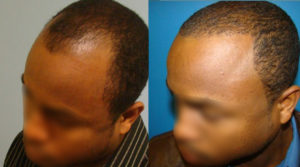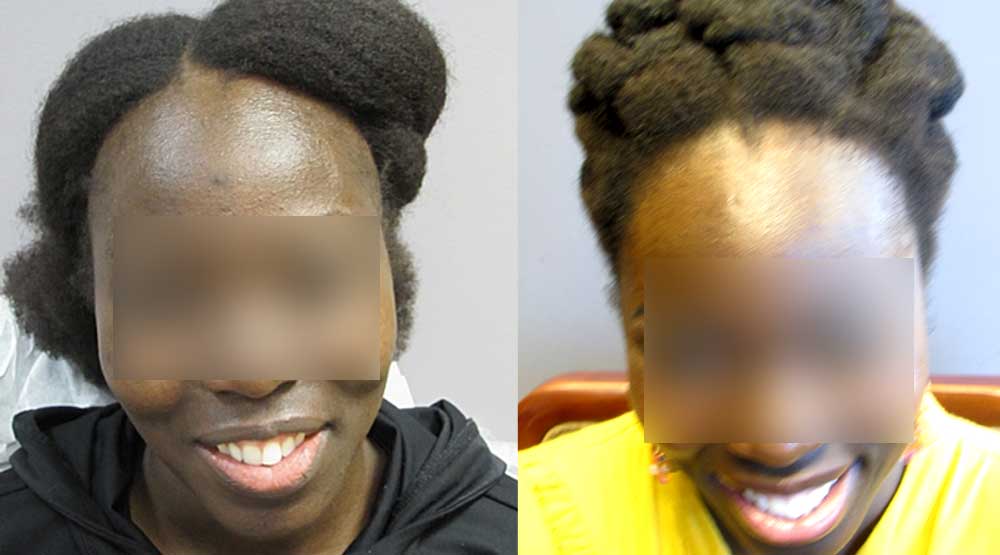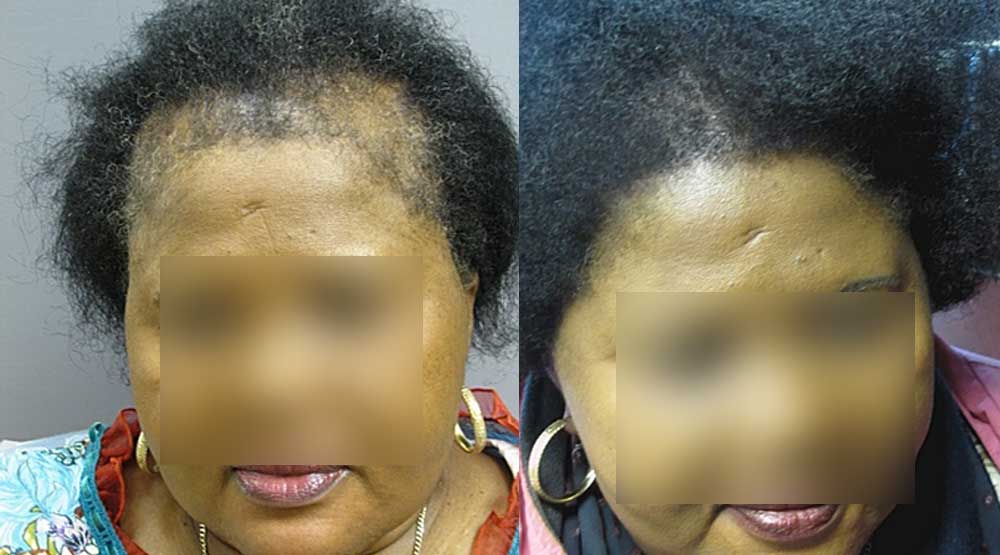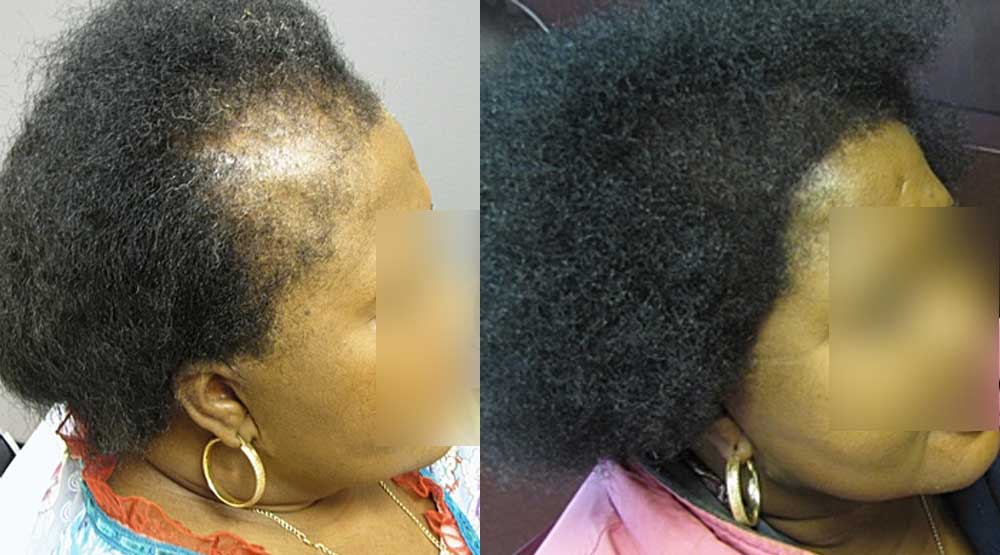African American Hair Restoration

There are some unique characteristics to African Americans experiencing hair loss that a physician must consider before performing hair restoration surgery. Physiologically, the hair follicle in this hair type is curled rather than angled in the scalp. This requires a surgeon with years of experience to properly extract the hair follicles safely. There is also a much higher tendency for Keloid scarring in this population versus other races. The surgeon should perform a comprehensive medical history and possibly test grafting to assure that healing will be acceptable.
Also, African American hair is particularly susceptible to damage because it’s among the most fragile and coarse hair. When African American hair is styled, colored, straightened with chemicals, or augmented, damage can occur. Hair loss can be the result from years of prolonged exposure to some common substances and styling techniques. At Mollura Medical Hair Restoration, we’ve helped hundreds of individuals with these specific forms of hair loss to restore their hairlines with incredible results.
Traction Alopecia (Tension Hair Loss)
Traction Alopecia is one of the most common types of African American hair loss and is also a primary cause of female hair loss. This hair loss on the edges occurs with particular frequency among African American women who braid or weave their hair causing tension on the hairline that results in permanent hair loss. Many hairstyles, including ponytails, buns, braids, rollers, and cornrows, can tug at hair, damaging hair follicles and causing hair loss. The weight of extensions is often a contributing factor in Traction Alopecia.

before (left) and after hair restoration of hair loss on the edges of the hairline.
CCCA or Hot Comb Alopecia
Central Centrifugal Cicatricial Alopecia is a scarring form of Alopecia that starts at the crown. Though it’s commonly believed to be caused by straightening hair with a hot comb, studies have shown this type of hair loss to result from the same causes as Traction Alopecia. Any type of hairstyle that consistently tugs on hair follicles can lead to damage and hair loss.
Solutions for African American Hair Loss
Fortunately, our hair restoration solutions are equally effective in African American hair as they are in non African American hair. Our restoration of this hair type is often particularly successful because the causes of some types of hair loss can be eliminated. Since these are only a few potential causes of hair loss, every client receives a thorough analysis before any solution is recommended.
We apply the same precision and artistic approach to all cases of hair loss. If you’re an African American individual experiencing Traction Alopecia or another form of hair loss, our surgical hair restoration solutions can work for you. Schedule your free consultation to receive a full scalp analysis by Dr. Mollura, explore your options, and view photos of actual clients with similar hair loss.





